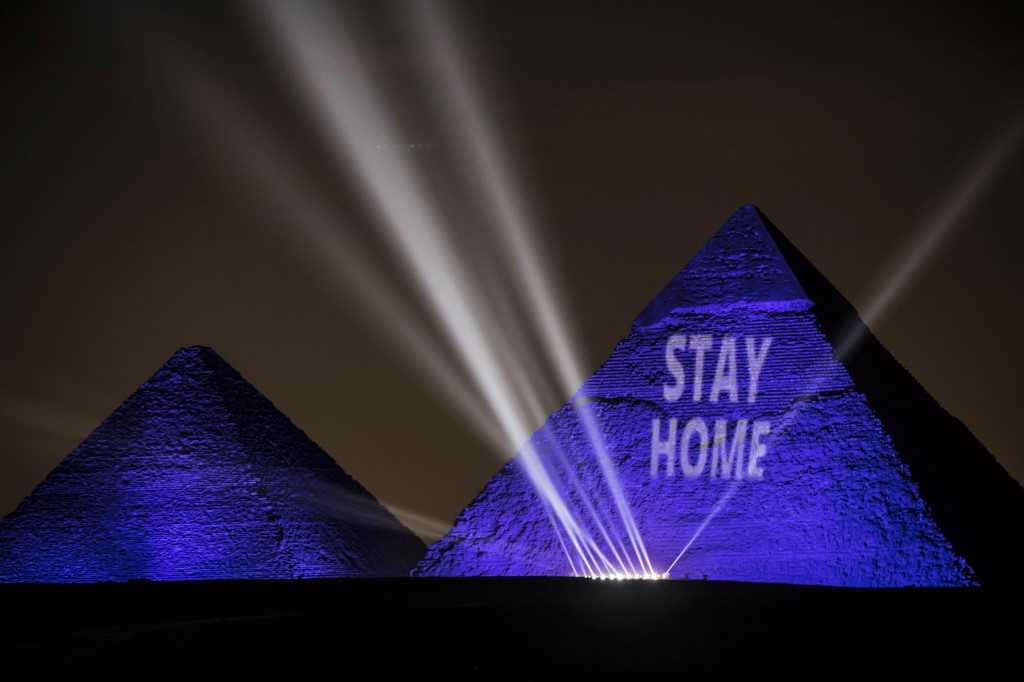Virus turns health staff in Egypt into 'outcasts'
21 April, 2020

After showing symptoms similar to those of the coronavirus, Egyptian doctor Ahmed Negm went into self-isolation within an old apartment, but before long he was hounded out by fearful neighbors.
While health workers in lots of countries are getting cheers and applause for risking their lives in the grueling battle against the condition, in some parts of the world they face suspicion and hostility.
Though they are regularly hailed by the North African nation's government and media as Egypt's "white [coated] army", many health personnel have complained to be shunned and mistreated by others in society.
Negm had already tested negative for the virus but, mindful to the fact that he had frequently handled suspected cases, went into confinement as a precaution.
As the 31-year-old sealed himself off from the exterior world, rumors swirled around his neighborhood in the northeastern province of Ismailia that he was infected and avoiding treatment.
He was even reported to the authorities.
Despite explaining his situation to them, the physician faced continued harassment, snide remarks and pleas from a few of his neighbors to leave the region because "there have been many children and elderly."
Eventually, Negm moved out.
"People are gripped by panic but they're taking it too much to a point where it feels as though a stigma," he told AFP.
"It's as if we've become outcasts."
Egypt's health workers, like those elsewhere, have already been stretched thin by the virus, grappling with extended hours, soaring caseloads and a higher risk of catching the disease themselves.
Medical staff in a number of hospitals in Cairo and other provinces have been infected.
Four doctors have become extinct of 43 who fell ill, according to the country's doctors union.
Health workers take into account some 13 percent of Egypt's total confirmed COVID-19 cases, that have risen above 3,000 including more than 200 fatalities, based on the World Health Organization.
'Worthless apology'
Even after death, one doctor who had caught the virus was targeted by fearful villagers who protested against her burial in Daqahliya province in the Nile Delta.
Authorities dispersed the hours-long demonstration and arrested 23 persons as part of a study into what the general public prosecutor described as "an act of terror".
Prime Minister Mostafa Madbouli deplored the "disgraceful" act and urged healthcare personnel to "pay no heed".
A nurse in the same province who had tested positive for the virus said she and other infected healthcare workers were contacted by strangers after their names and contact details were widely shared on social media.
"Many called to aid and pray for all of us … but others accused us of spreading the virus and to be the foundation of infection," she said, wearing a mask, her voice quivering in a video posted online.
"We're exhausted. Have mercy on us. Our spirits have already been destroyed."
Dina Abdelsalam, a health care provider in Ismailia province, said her neighbors publicly smeared her because she works at a hospital which receives suspected coronavirus cases.
After recently moving to a fresh apartment to stay away from her family as a precaution, she said she was startled by her neighbors shouting in the pub, accusing her of "bringing the condition" to the region.
The authorities intervened and her neighbors eventually apologized.
But also for Abdelsalam their apology was "worthless" once they treated her such as a "suspected [criminal]".
"We [medics] are suffering," she said in an online video, "and you are rendering it worse."
'Grievously detrimental'
Other doctors from Cairo, the northern city of Alexandria and elsewhere have complained on Facebook of being refused taxi rides or food delivery because of fears of contagion.
Such treatment of healthcare workers "could make an already challenging situation a lot more difficult," the WHO representative in Egypt, Jean Jabbour, told AFP.
"Targeting essential providers ... will weaken our fight COVID-19 and may prove grievously detrimental for the whole nation."
And as complaints surged, local media reported that lawmakers are mulling criminalizing the "bullying" of medical workers.
At the same time many Egyptians appeared in recent online videos to be ignoring rules on social distancing aimed at reducing the chance of contagion in the country of 100 million people.
"They are taking it out on us rather than abandoning habits which will much more likely expose them to the condition," said pharmacist Heba al-Feky, who was simply recently forced out of a taxi to be a health worker.
Source: www.thejakartapost.com
